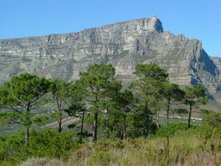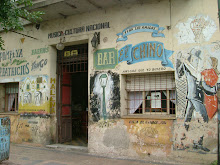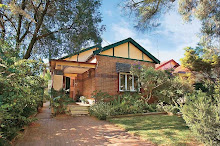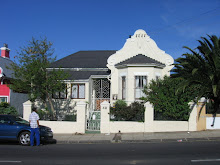
One of the most wonderful things about living in Sydney is the incredible diversity of music, song and dance (and food, but that goes without saying) from a multitude of nationalities. Francis and I feel privileged to be included in Chilean and Bolivian events, to be able to eat out and listen to local music at the Cyprus club, to try to count the complex beats of Greek music at Steki in Newtown, and to be part of folk festivals and choir events, political and other, all over Sydney.
On Sunday afternoon Mary-Jane Field, our special friend, had another of her Penas. A pena is a concert, a community event, and when Mary-Jane arranges them, they are always of the finest musical standard and supported by a great number of people, most of whom volunteer in some way - to sing, to perform, or to help with food and raffles....
Sunday's Pena was no exception. Mary-Jane would like us to believe it was her last, but I doubt that. It might have been the last in a series that celebrated the Cantata por Domitila, a cantata that Mary-Jane wrote in celebration of the life of Domitila Barrio de Chungara. On her website, Mary-Jane describes the Cantata as
a work featuring a fusion of musical styles blended with traditional and modern Bolivian folk music. The Cantata tells the story of Domitila Barrios de Chungara, a courageous Bolivian woman who has dedicated most of her life to the struggle for the rights of the tin miners of her country.
The Pena was filled with choirs including the Bright Stars led by Mary-Jane, a church choir Mary-Jane sings in and her incredible daughter and granddaughters singing as the West Girls in close harmony and a capello. There were folk singers and other performers. But for me the highlight was a tango demonstration. Not because I am completely crazy about tango and dedicated five years to it, but because this particular performance was enormously challenged by the music breaking down over and over again, and the resultant miracle performance was one of the most moving I have seen. Miguel, Heatwole, a well-known choir leader in Sydney, came to their rescue. Accompanied only by the steady clicking of his fingers, he took the mike and in a velvety tango voice, slowly and deliberately sang a tango for the dancers to perform to. The audience was mesmerised, and their quiet clicking fingers were testimony to their will to make the performance work. I take my hat off to the dancers, Margarita and Guy from Tango Embrace, and to Miguel for their quick thinking and their gut-wrenching performance.
Mary-Jane has once again woven her magic in the Spanish and English musical world. Her Bolivian friends' performance of Bolivian folk music with it's contagious beat rounded the evening off. The proceeds went to the Auntie and Uncles charity in Australia and to a Bolivian charity. And once again we had had the privilege of being part of the extraordinary mix of cultures that is so very Sydney.










